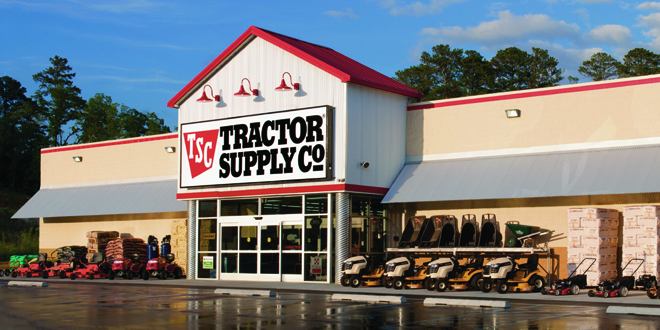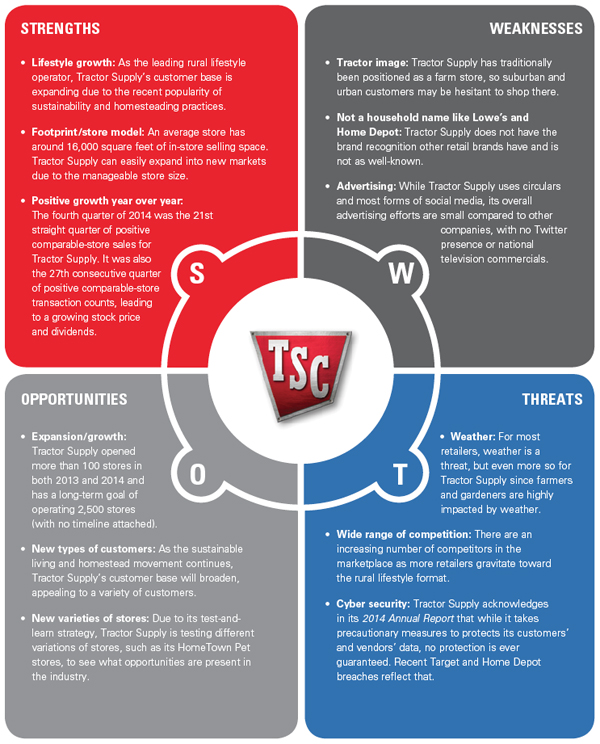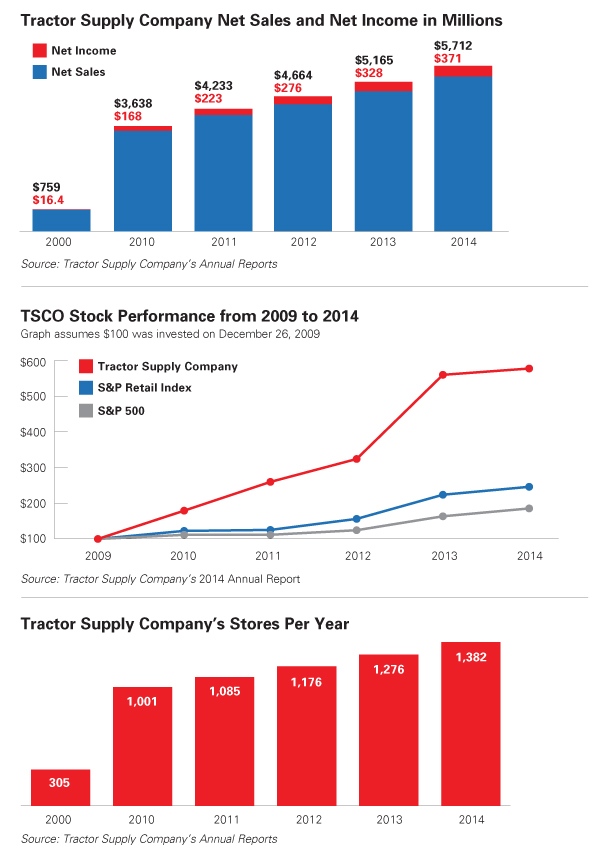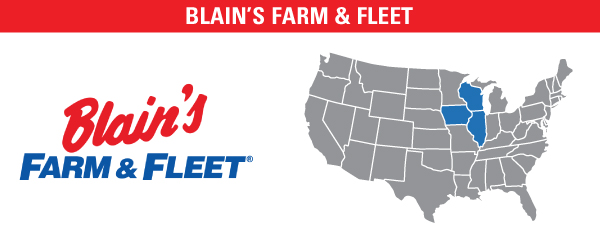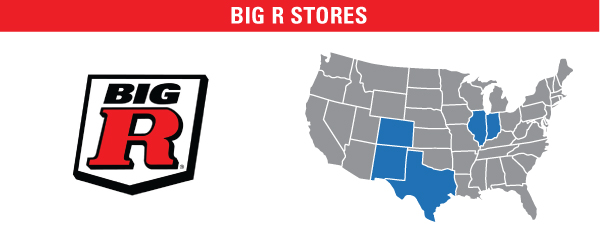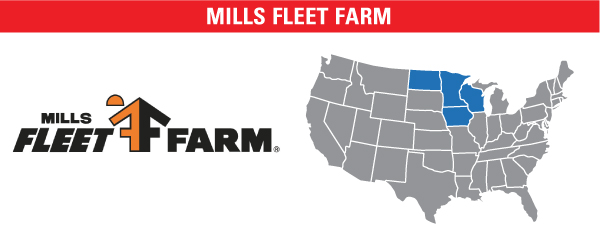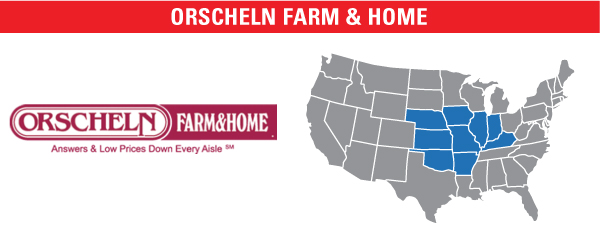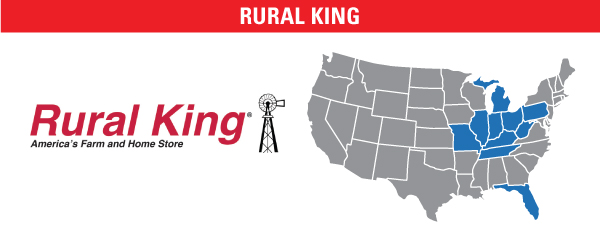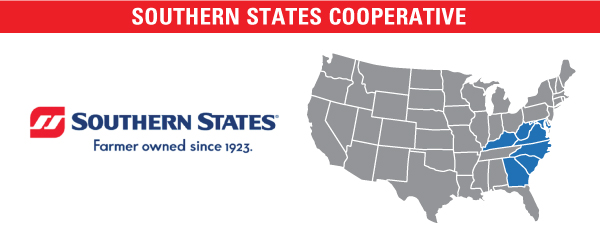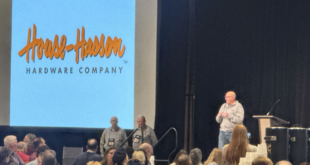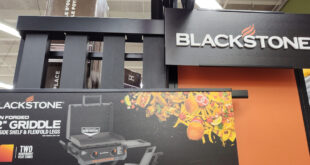To view a PDF of this story, click here.
By Kate Klein, kklein@nrha.org and Sara Logel slogel@nrha.org
The information in this 360 overview was gathered by Hardware Retailing staff from a variety of resources that are attributed throughout.
Tractor Supply Company, a long-time specialty retailer, has emerged as a retail innovator and is evolving as it goes. The company focused for decades on selling agricultural supplies to farmers, but now offers many of the same products carried by hardware stores and home centers to people choosing a rural lifestyle. This year, Tractor Supply reported that only a small fraction of its customers farmed full-time, and the majority are people who favor an increasingly popular lifestyle, which even in urban areas is grounded in sustainable, small-time farm practices and homesteading.
While big-box stores’ growth seems to have crested, Tractor Supply continues to boom. Its stores, which average about 16,000 square feet, are small enough for quick penetration into new markets. The company’s shift from focusing on career farmers as customers has led to rapid growth within the past 18 years. In that time, Tractor Supply’s store count went up nearly 500 percent to 1,400 locations, with no stop in sight.
Below, we will look at how Tractor Supply grew from a small specialty supplier to a rapidly growing retail chain that sells a lifestyle. We will also analyze what makes Tractor Supply successful so you can learn from the company. To offer further understanding of the rural lifestyle industry, we also highlight other large retail operations.
Tractor Supply Company’s Humble Beginning
Today’s largest operator of retail farm and ranch stores in the U.S. is on a fast track. Booming sales and ambitious growth initiatives are propelling Tractor Supply Company forward into neighborhoods and rural communities across the country.
But before we look to Tractor Supply’s successes and future plans, we’ll review the company’s modest beginning as a mail-order catalog company.
In 1938, Charles E. Schmidt Sr. of Chicago started selling tractor parts by mail to American family farmers.
“Charlie Schmidt saw an opportunity for a mail-order business to supply fairly priced tractor replacement parts to frugal farmers whose only other option was to pay a premium to the dealer or manufacturer of their equipment,” writes Nelson Eddy in the book Work Hard, Have Fun, Make Money: The Tractor Supply Story. That first year, the company sold $50,000 in tractor supplies by catalog. The catalogs listed 2,000 products on 24 pages.
Within a year, Tractor Supply had opened its first retail store in rural Minot, North Dakota, in an effort to grow the business and target potential customers better.
At this time, Tractor Supply’s customer base was 90 percent farmers, Eddy says, but after World War II, the company moved closer to cities due to farm consolidations and growing manufacturers. This move came with a name change to TSC.
At the time, Tractor Supply also became publicly traded on the Over-The-Counter Market on January 14, 1959, with an initial offering of $12 a share. In less than two years, Tractor Supply was traded on the New York Stock Exchange.
In 1967, Tractor Supply went international, opening two subsidiaries in Canada, increasing to five stores one year later.
In 1969, National Industries bought Charles Schmidt’s controlling interest in the company, which came at a surprise to executives and started a downward turn for the company. An unclear vision—the result of acquisitions, five different presidents, two ownership groups and inventory that strayed from its traditional niche and confused employees and customers—resulted in Tractor Supply losing $13 million in 1980.
After this loss, which was substantial for a company earning less than $100 million in sales, Tractor Supply made changes that led to a break-even year in 1982. The company has been profitable every year since.
At the end of 1982, Tractor Supply put ownership back in the executives’ hands. For the first time in 25 years, “Tractor Supply wasn’t either a publicly held company or a publicly traded company,” according to Eddy.
A new leadership team, a clear vision and a return to the farm-store niche and to the people who served the land kept the business growing.
Tractor Supply incorporated in 1982 in Delaware and again went public 12 years later. In 1994, Tractor Supply stock began trading on the Nasdaq under the TSCO ticker symbol for $20 per share.
As of 2014, Tractor Supply operated 1,382 stores in 49 states, opening 107 stores in 2014 alone. All of these stores are company-owned and -operated. Tractor Supply’s headquarters, or store support center, is located in Brentwood, Tennessee.
Three Quick Facts About Tractor Supply Company.
1. Tractor Supply operates under three different store names in the U.S.: Tractor Supply Company, Del’s Feed & Farm Supply and HomeTown Pet.
2. Mission statement: “Work hard, have fun and make money by providing legendary service and great products at everyday low prices.”
3. In 2014, comparable-store sales for Tractor Supply increased 3.8 percent over 2013, for a 21st consecutive quarter of growth.
Source: Tractor Supply Company 2014 Annual Report
A Closer Look at Tractor Supply Company
Customers
Tractor Supply’s customers are home, land, pet and livestock owners, as well as DIYers who “live a conservative and self-reliant lifestyle,” according to the company’s 2014 Annual Report. The customer base is also loyal, consistent and growing, the company says.
Product Categories
Tractor Supply is the largest seller of products for the rural lifestyle, and the company has a multitude of core categories to choose from.
These categories are:
• Equine, livestock, pet and small animal products, including items necessary for their health, care, growth and containment.
• Hardware, truck, towing and tool products.
• Seasonal products, including lawn and garden items, power equipment, gifts and toys.
• Maintenance products for agricultural and rural use.
• Work/recreational clothing and footwear.
Tractor Supply is also focused on localizing its product mix to cater to regional needs. As more stores are added out west, with locations farther apart, Tractor Supply is trying to offer unique product mixes specific to locations.
“You’re going to see a lot of localized products,” according to Steve Barbarick, executive vice president of merchandising and marketing, in a 2014 earnings call. “We are continuing to refine what we’re doing,” he says.
Therefore, products will be different in new stores opening out west than those in the northwest. For example, a store in Utah carries beekeeping supplies.
“We went out there; we researched the market,” Barbarick says. “We saw it in a lot of our competitors and thought, well, we better put our best foot forward when we move out there.”
Trying various product assortments is part of Tractor Supply’s test-and-learn philosophy, which company leadership describes in numerous company reports.
Vendors
Tractor Supply uses both domestic and international vendors. It purchases products from 800 vendors and, according to its 2014 Annual Report, no single vendor represents more than 10 percent of its inventory purchases. About 300 core vendors accounted for nearly 90 percent of company purchases made in 2014.
Tractor Supply also offers private-label products made to provide alternatives to national brands. Selling these exclusive brands “helps provide value for our customers and positions us as a destination store,” according to the company’s 2014 Annual Report. In 2014, 31 percent of total sales were from the company’s private-label brands.
Logistics
A substantial investment for Tractor Supply has been in logistics. Currently, Tractor Supply owns seven distribution centers with locations in Georgia, Indiana, Kentucky, Maryland, Nebraska, Texas and Washington. Combined, these distribution centers have a capacity of 4.2 million square feet.
Construction is under way for an eighth distribution center in Casa Grande, Arizona, which will be completed by the end of 2015. This center will support Tractor Supply’s western expansion.
Nearly 70 percent of the company’s merchandise flows through these centers, while vendors deliver the other 30 percent of products directly to the stores.
Customer Service
Tractor Supply prides itself on its customer service. The company states in its annual report that it is “committed to providing our customers reliable product availability and a high level of instore service through our motivated, well-trained store team members.”
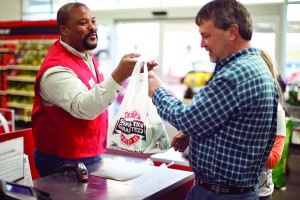
Tractor Supply strives to hire employees with farming and ranching backgrounds.
To maintain employees who are courteous, highly motivated and well-trained, Tractor Supply has implemented comprehensive training programs. The programs include a thorough on-boarding process, new store training, customer service and selling-skills training, product knowledge training, management training and leadership development programs.
To monitor customer service levels, the company uses a third party to provide customer feedback. Based on the feedback, Tractor Supply rates itself best in class.
Online
Tractor Supply’s e-commerce website, TractorSupply.com, provides customers the ability to shop, research and purchase products online and have the items shipped to their homes or offices or to company retail stores. The distribution center in Franklin, Kentucky, fulfills these online orders.
The company recently “introduced an optimized mobile and tablet experience, improved the site response time and added additional product offerings for vendor direct to customer drop ships,” the 2014 Annual Report says. Omnichannel is an initiative that Tractor Supply will continue to invest in.
“We ship about 30 percent of our products to the store, which… we think is great because it will take our customer to the store and could lead to potential increase in sales at the store level,” Tony Crudele, executive vice president and CFO, says in the company’s fourth-quarter 2014 earnings call.
Brand
“For Life Out Here,” Tractor Supply’s tagline, is in reference to the rural lifestyle. The motto is portrayed through the company’s partnerships and the products it sells. Annually, Tractor Supply runs promotions and weeklong events to interact with and serve the community. For example, the company’s partnerships with local pet adoption agencies have helped find homes for 4,800 animals.
Primary partnerships Tractor Supply maintains are with the 4-H and the National FFA Organization. For both programs, Tractor Supply makes donations, hosts fundraisers and sponsors events that grow awareness of the local chapters.
“We support national organizations, such as FFA and 4-H, which promote and protect our lifestyle and the land it depends on, and focus on educating younger generations,” president and CEO Greg Sandfort says.
Tractor Supply Company Looks to the Future
Growth
Tractor Supply anticipates opening more than 110 new stores in 2015. This rapid expansion is part of its goal of operating 2,500 total stores in the future. So far, Tractor Supply has identified more than 700 markets for new stores. Most of the present and prospective store sites are located in rural communities across the U.S.
 Logistics
Logistics
Late in 2015, Tractor Supply plans to open two small distribution centers, which the company calls mixing centers, in Texas.
These facilities are “smaller cross-docking style distribution facilities that handle many of our palletized products and faster-turning queue items, such as… shavings and wood pellets,” Sandfort says. These centers will push high-bulk, highvelocity, low-value product.
“With our vendors delivering products directly to these mixing centers, which are located closer to our stores, we can shorten our supply chain stem miles and reduce in-store inventory levels to more frequent store deliveries,” Sandfort says in a 2014 earnings call.
Sustainability
As a partner of the SmartWay Program, a publicprivate initiative between the Environmental Protection Agency and companies that move products, Tractor Supply has made recent efforts to reduce waste across the company. Its distribution centers collectively reduce waste through recycling, with 85 percent of their waste processed through recycling efforts, according to the 2014 Annual Report.
“These initiatives include energy management systems, high-efficiency lighting and heating/air conditioning systems in stores, and recycling programs in our stores, distribution centers, and Store Support Center,” according to the 2014 Annual Report.
HomeTown Pet Stores
Toward the end of 2014, Tractor Supply began a new test-store model called HomeTown Pet. The two pilot stores, located in Fairview and Franklin, Tennessee, are new concept pet supply stores that provide high-quality products and services.
“The stores offer products for a wide variety of pets and animals, including cats, dogs, poultry, birds and horses as well as grooming and mobile vet services,” according to the 2014 Annual Report. While pet products sell well in Tractor Supply stores already, the purpose of these HomeTown Pet stores is to gain added insight into the pet market, helping the company better understand the needs of pet owners.
Better Planning
Along with improved logistics, energy management and price optimization systems, Tractor Supply is improving its merchandising through its Merchandise Innovation Center, a new planogram facility that, according to Sandfort, “gives us the ability to review, analyze and improve multiple planograms and floor sets in a full-size store environment before their proposed rollout.”
Omnichannel
Some of Tractor Supply’s online priorities in 2015, as noted in its 2015 Investment Community Event presentation, are to upgrade its current platform, enhance online content and provide alternate delivery methods, continuously improving its omnichannel efforts.
Tractor Supply Company SWOT Analysis
Upward Growth Trajectory: A Financial Analysis
From the President’s Perspective
Greg Sandfort
President and CEO of Tractor Supply Company since 2012. He has served in executive leadership within the company since 2007, and has many prior years of experience working in retail.
Hardware Retailing: TSC has changed a lot since the company began, transitioning from a specialty supplier to a mainstream retail player. What are key things TSC has done during this transition that has helped the company adapt to its new role and the new customers it serves?
GS: Throughout our 77-year history, we have been committed to the same set of missions and values that still drives our principles and strong culture today. Our mission is to be the most dependable supplier of basic maintenance products for the rural lifestyle consumer.
We are constantly evolving our offerings to meet the changing needs of our customers. We regularly solicit feedback from our customers and our team members to ensure we stay current on what our customers want and expect from Tractor Supply, and will continue to do so. We believe inventory management is a core competency and strategic advantage for Tractor Supply.
HR: Why do you think TSC has been able to navigate this transition while other similar businesses haven’t?
GS: Tractor Supply has been successful by staying true to our missions and values, investing in team member training and hiring and delivering legendary customer service and leadership, all of which create a strong customer loyalty.
Also important to note is that we sell products people need and use every day. We sell them at great prices, focus on in-stock availability and make it very easy/convenient to get in and out of our stores.
HR: What does today’s typical TSC customer look like?
GS: We serve a unique niche as a one-stop shop for those living the rural lifestyle. Our customers are hardworking, self-reliant do-it-yourselfers who take pride in their work. They want quality products that will help them get the job done right and last over time. They are landowners who enjoy the outdoors and value their land, pets and animals.
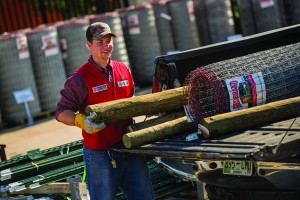
HR: Do you think consumers’ desire to live a more rural lifestyle resonates with younger generations?
GS: As we continue to learn more about our customers through a growing database, we have found that the products we sell, plus the aspirational lifestyle our stores and team members represent, appeal to a larger consumer base. We serve a lifestyle that is self-reliant and promotes sustainable living, which we believe resonates with all of our customers and is particularly important to younger generations.
HR: What have been some of the biggest challenges TSC has overcome as it has broadened its consumer base?
GS: We have grown our business effectively despite challenging economic environments and volatile weather trends. We believe our results are a function of the balanced approach we take to run our business, through managing sales, margins, expenses and capital investments.
Tractor Supply continues to implement sophisticated systems and supply chain operations to efficiently support continued growth. For example, in Q4 FY 2014, we purchased land and have started construction on our new distribution center in Casa Grande, Arizona, and also plan to open two smaller distribution centers in our Texas region in 2015.
Additionally, our new demand planning system has been rolled out to the first few merchandise categories. The new system analyzes historical and real-time sales patterns and uses predictive modeling to make inventory decisions throughout the year. As the buying patterns and needs of customers in certain markets evolve, this will help to ensure that we are able to better react to those changes. We will methodically roll out the system across our merchandise categories throughout 2015, which should further improve inventory allocation.
HR: The concept of living a rural lifestyle seems like it can be radically different based on geography. How does TSC keep its product selection and messaging relevant to customers in diverse areas?
GS: Our broad product assortment and physical store size are tailored to meet the needs of our customers in various geographic markets. We pride ourselves on the ability to adapt merchandise in our stores based on the needs of the particular market.
Well before Tractor Supply enters a new market, our team does extensive research focusing on key metrics, census data and Department of Agriculture data. We also look at what the current competition is doing and doing well, where their gaps are and how we could compete. We have had great success using this formula, and use it throughout our product assortments and strategic marketing approaches.
HR: How has online retailing played a role in TSC’s growth to this point? How do you see it playing a role moving forward?
GS: We are taking a calculated approach to building an omnichannel business in order to continually add product information and high-quality content/know-how information, position ourselves as the authority of the rural lifestyle our customers enjoy and offer the products our customers need through e-commerce. We are ramping up efforts nicely, but e-commerce is not as big of a business for us as it may be for other retailers.
HR: Can you tell us a little bit about the development of the “For Life Out Here” tagline and how it fits into TSC’s brand position strategy?
GS: “For Life Out Here” speaks to our customers’ passion for living a rural lifestyle; one that revolves around family, community, dedication to the land, hard work and the animals they care for and love every day. We understand and support this lifestyle because we live it ourselves and share the same values and passions as the customers we serve: honesty, integrity, hard work, family and a balanced lifestyle.
HR: How do you see the rural lifestyle market changing over the next several years?
GS: We believe that a fragmented market gives Tractor Supply Company the opportunity to become the go-to retailer of choice, supplying basic maintenance products necessary to maintain the rural lifestyle.
HR: TSC engages in a number of philanthropic efforts like its work with 4-H and FFA. Why are those important to the company?
GS: We are committed to giving back to the communities we serve and supporting the programs that strengthen them through different philanthropic initiatives. Some promote learning about agriculture and farming practices. Others promote leadership and life skills through competitions and hands-on activities. But whether the focus is the land or the lifestyle, we are committed to partnerships that make the most sense and the biggest difference.
Other Key Players in Rural Lifestyle Retailing
Tractor Supply is now the retail leader in targeting consumers who choose a rural lifestyle rather than a farming profession. The realization that most of its customers weren’t career farmers has helped the company grow.
“It gave us a license to adjust our assortment and gives us a much broader reach,” CFO Anthony Crudele says an article from Investor’s Business Daily. Fewer than 10 percent of Tractor Supply customers farm full-time, according to the article.
Smaller farm supply retailers have followed the company’s model, targeting customers who are hobby or small-time farmers, rural homeowners and pet lovers. Tractor Supply’s rapid expansion plan expresses confidence that the market isn’t shrinking, and other retailers and investors see the industry as ripe for growth.
“[The] global economy and the global demographics are such that rural populations are going to continue to expand,” Randolph Bateman, president and chief investment officer for Huntington Asset Advisors, told Forbes at the end of 2014. He named Tractor Supply Company as one of the companies that will benefit from the trend.
“…I think it gives a sweet spot for the U.S. because we have such a good proportion of arable land. At the same time, a lot of that same rural community is benefitting from fracking and production of energy now. So we’re seeing capital move into that area,” Bateman says.
Like Tractor Supply, the following businesses are vying for a growing group of customers who choose small-time rural living or urban homesteading. Only Southern States Cooperative is older than Tractor Supply, and that organization serves primarily as a farmer-owned co-op rather than as a retailer focused on operating stores. Wilco, like Southern States, is a co-op that also owns stores.
The others have followed Tractor Supply’s model more closely, opening as small family businesses that served American farmers and then moved toward more of a rural lifestyle focus over time.
• Blain’s is a specialty discount retailer that sells farm supplies, such as tractor implements and livestock diet supplements, but also housewares, home and office furniture, clothing and footwear, pet and wild bird products, automotive tools and parts and home improvement items.
• The parent company, Blain’s Supply, is headquartered in Janesville, Wisconsin.
• The chain operates 36 stores in Illinois, Iowa and Wisconsin.
• Brothers Claude and Bert Blain started the company in 1955.
• The president and CEO is Jane Blain Gilbertson, who is the daughter of founder Bert Blain. She has worked for the company for more than 30 years, and took executive leadership of the family business in 2014 when her brother Robert Blain retired from the role.
• Jane Blain Gilbertson and Robert Blain bought the company from the rest of their family about 15 years ago. Gilbertson is now the sole owner.
• Blain’s Farm & Fleet employs more than 4,000 people.
• The company is active in philanthropy, supporting the Bert and Claude Blain Memorial Scholarships and organizations such as the American Heart Association, the Kids Helping Kids program, FFA and 4-H.
• Big R is the name of multiple independent farm and ranch store chains. Each chain is individually owned, but licensed to operate under the Big R brand name.
• Big R stores sell hardware, automotive, sporting goods, lawn and garden, fencing, livestock equipment, clothing and boots, tack and other agricultural supply products.
• The largest Big R chains are headquartered in Colorado and Illinois, and both started in the 1960s as family businesses.
• Big R of Lamar, headquartered in Pueblo, Colorado, owns 19 stores in Colorado, New Mexico and Texas. Illinois Big R Stores of Watseka, Illinois, operates 17 locations in Illinois and Indiana. Multiple smaller Big R chains operate across the country.
• The business is a full-service supplier of products for life, work, home and recreation and sells gear for fishing and hunting, farm and pet supplies, tires and items across categories such as clothing and footwear, lawn and garden and toys.
• Mills Fleet Farm is headquartered in Brainerd, Minnesota.
• The company owns and operates 34 retail store locations across Iowa, Minnesota, North Dakota and Wisconsin.
• Stewart C. Mills Sr. started the family business in Brainerd, Minnesota, when he bought an automobile company. The family opened its first store selling directly to farmers in 1955 in Marshfield, Wisconsin.
• The third generation of the Mills family now owns Mills Fleet Farm.
• Orscheln stores sell rugged products, including supplies for farm and ranch, lawn and garden, livestock and feed, pet care, animal health, home improvement, automotive, hardware, fencing, western clothing and footwear and sporting goods.
• The company headquarters is in Moberly, Missouri.
• The company operates more than 160 stores in Arkansas, Illinois, Indiana, Iowa, Kansas, Kentucky, Missouri, Nebraska and Oklahoma.
• W.C. Orscheln opened the family’s first farm and home store in 1960 in Sedalia, Missouri.
• W.C. Orscheln’s grandson, Barry L. Orscheln, is company CEO.
• The Orschelns’ entrepreneurship has resulted in more than 12 privately owned companies.
• Rural King’s stores product mix includes livestock feed, farm equipment, lawnmowers, work wear, fashion clothing, housewares and toys. The company promotes itself as a retailer with everyday low prices and as an industry leader in product knowledge.
• Rural King’s corporate headquarters is located in Mattoon, Illinois.
• The company owns 80 stores in Florida, Illinois, Indiana, Kentucky, Michigan, Missouri, Ohio, Pennsylvania, Tennessee and West Virginia.
• Business partners Kermit Speer and Keith Beaird started the company in 1960 in Mattoon, Illinois.
• CEO Alex Melvin represents the third generation of the Speer family to operate the company.
• Southern States is one of the nation’s largest agricultural cooperatives, providing a wide array of farm products, including fertilizer, seed, livestock feed, pet food, animal health supplies, fencing wire and petroleum products.
• The farm supply and service co-op is based in Richmond, Virginia.
• The organization owns and operates 180 retail stores in Georgia, Kentucky, Maryland, North Carolina, South Carolina, Virginia and West Virginia under the Southern States brand. The cooperative also services 1,200 independent retailers in 23 states.
• About 150 farmers started the cooperative in 1923. In 1960, the organization formed what is now the largest seed-breeding research organization in the world.
• Jeff Stroburg is the co-op’s president and CEO.
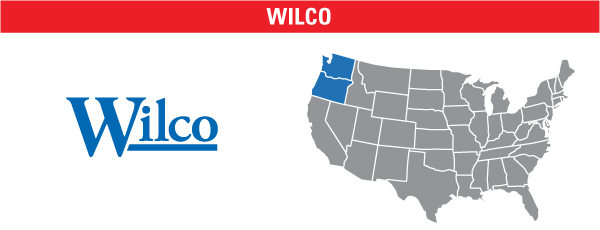 • Wilco’s farm stores sell work wear and footwear, hardware, paint, lawn and garden supplies, pet food and supplies, livestock supplies, feed and fencing.
• Wilco’s farm stores sell work wear and footwear, hardware, paint, lawn and garden supplies, pet food and supplies, livestock supplies, feed and fencing.
• The farmer-owned cooperative is headquartered in Mount Angel, Oregon. The organization has 3,000 members.
• The cooperative owns and operates 15 retail stores in Oregon and Washington. In addition to the stores, Wilco has two other businesses: agronomy centers and bulk petroleum.
• The organization has $230 million in sales and 700 employees.
• Wilco began under another name in the 1930s. In 1967, that original co-op merged with four other cooperatives, forming Wilco. The name Wilco stands for Willamette Valley Cooperatives.
• Doug Hoffman is Wilco’s president and CEO.
 Hardware Retailing The Industry's Source for Insights and Information
Hardware Retailing The Industry's Source for Insights and Information

